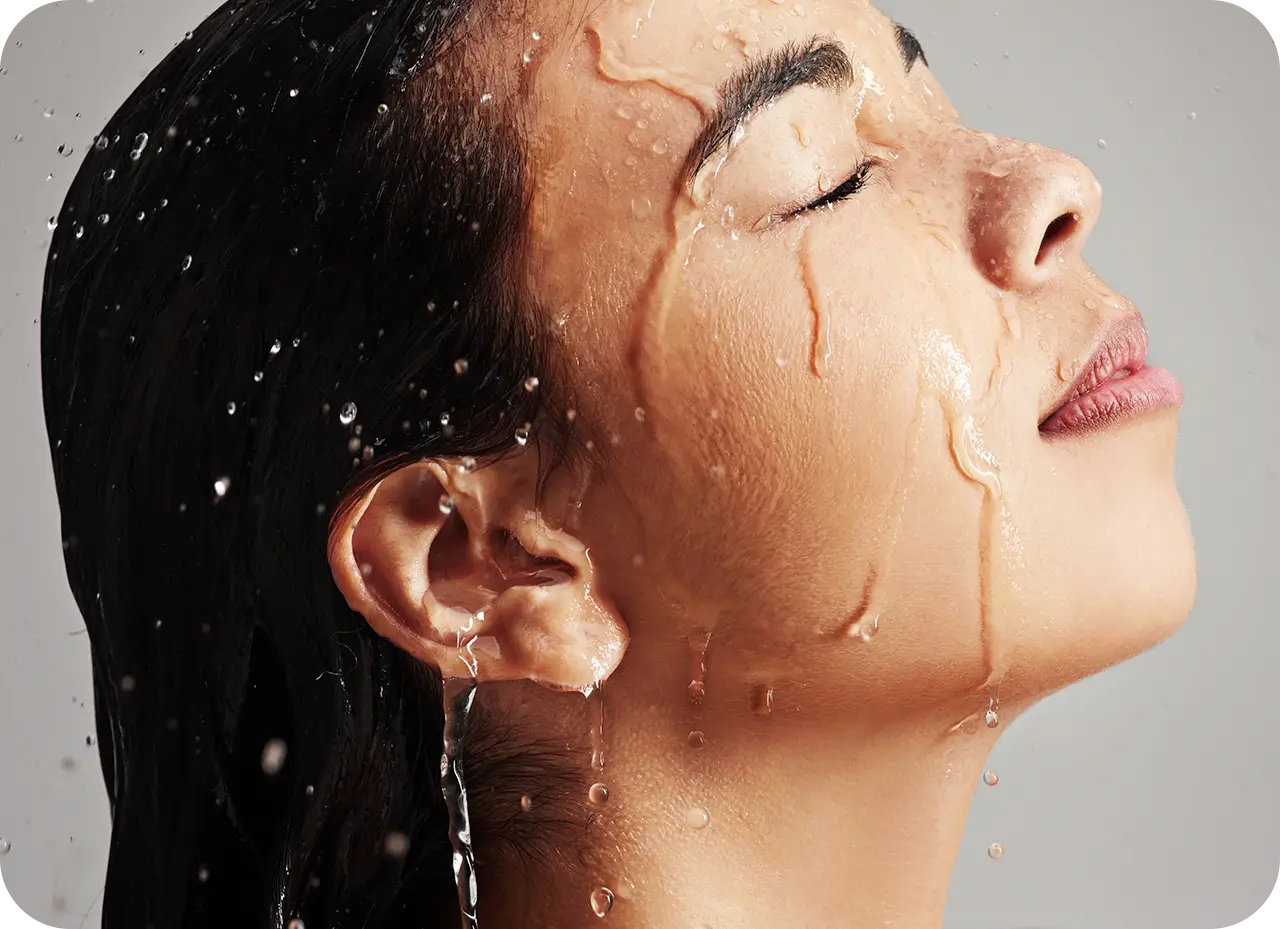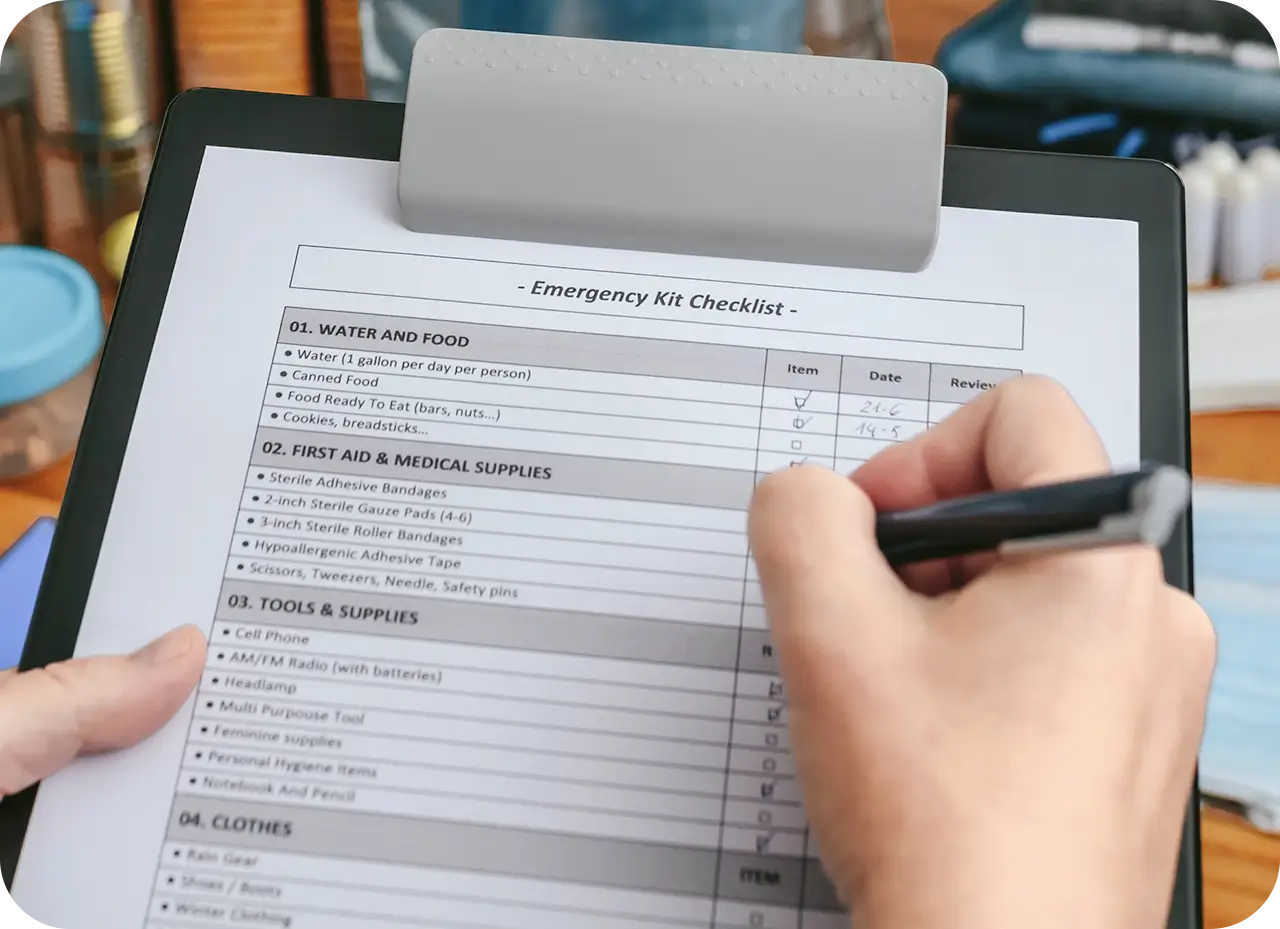Ear bleeding can be a bit alarming at first, but most of the time, it’s really not a big deal. Often, a small slip while cleaning your ears can cause minor irritation or a little scratch. Don’t worry, it usually clears up on its own pretty quickly. In this guide, we’ll take a look at why ear bleeding happens and what you can do to stop it, along with some simple tips for caring for your ears.
Why Does Ear Bleeding Happen After Cleaning?
Ear bleeding after cleaning usually happens for a few reasons. Here's what's going on:
-
Using Cotton Swabs or Other Stuff It’s super tempting to clean deep with a cotton swab, but doing that can actually hurt your ear. Sticking anything in there can scratch or tear the sensitive skin, which leads to bleeding.
-
Cleaning Too Much Your ears are pretty good at cleaning themselves, so if you're cleaning them too often or too roughly, it can cause irritation or even tiny cuts. That can easily lead to a little bleeding.
-
Infections or Inflammation If your ear’s already irritated or infected (like swimmer’s ear), cleaning it can make things worse. Cleaning can aggravate the problem, causing some bleeding.
-
Earwax Buildup If you have a lot of earwax, trying to clean it out might cause a little discomfort or even injury. Sometimes the pressure from cleaning can break the skin inside, leading to a bit of blood.
How to Stop Ear Bleeding After Cleaning: A Step-by-Step Guide
If you notice bleeding after cleaning your ear, it’s important to stay calm. Most of the time, it’s not something to worry about, and a little attention can stop the bleeding. Here’s a simple, step-by-step guide to help:
-
Stay Calm and Assess the Situation First things first, don’t panic. A little blood can be unsettling, but it’s often nothing serious. Check to see if the bleeding is light and if there’s no intense pain. If the bleeding is heavy or continuous, or if you’re feeling sharp pain, it’s best to seek medical attention.
-
Gently Wipe the Blood Away Take a clean cloth or some gauze and gently dab the outer part of your ear to remove any blood. Avoid putting anything inside the ear canal—no cotton swabs or fingers. Inserting anything into the ear can cause further irritation or injury.
-
Apply a Cold Compress If there’s swelling or if your ear feels sore, a cold compress can help. Use a clean cloth with cold water or an ice pack wrapped in a towel, and apply it gently to the outer ear for about 10-15 minutes. This helps reduce swelling, slows the bleeding, and soothes the pain.
-
Avoid Cleaning Your Ear Again Even though it might feel like you need to clean your ear more, it’s important to let it heal first. Don’t put anything into the ear canal for at least 24 hours. Over-cleaning can make things worse by causing further irritation or pushing earwax deeper inside.
-
Keep Your Ear Dry While your ear is healing, it’s a good idea to keep it dry. Avoid getting water in your ear, especially if you’re showering or swimming. Water can introduce bacteria and increase the risk of infection. If you need to protect your ear during a shower, you can use a cotton ball lightly coated with petroleum jelly to keep the water out.
-
Watch for Signs of Infection Even if the bleeding stops, it’s important to keep an eye on your ear over the next few days. If you notice increased pain, a pus-like discharge, or a persistent feeling of fullness in the ear, these could be signs of infection. In such cases, it’s a good idea to see a healthcare professional.
-
Rest and Allow Time for Healing Just like any other small injury, your ear needs time to heal. Take it easy and avoid any further irritation. Most minor bleeding will stop within a few hours, and the area should start healing within a couple of days.
Once the bleeding has stopped and your ear is feeling better, it’s important to continue caring for it properly to avoid any future issues. By following a few simple ear care tips and making sure you’re cleaning your ears gently and safely, you can prevent further irritation and keep your ears healthy. In the next section, we’ll share some helpful tips on how to take care of your ears to avoid injury or infection moving forward.
Related: Why Do I Cough When Cleaning My Ears?
What Home Remedy Can I Use to Stop My Ears from Bleeding?
If your ear is bleeding a little, there are a few simple home remedies you can try. First, diluted hydrogen peroxide can help clean out any debris or earwax that might irritate your ear. Just mix it with water and put a few drops in your ear, letting it sit for a minute before tilting your head to let it drain.

If the bleeding is caused by dryness or irritation, warm olive oil might help. A few drops into your ear can soften the skin and ease discomfort. Let it sit for a few minutes, then drain it out gently.
Another option is a salt water rinse—you can use a saline solution to wipe the outer part of your ear. Just make sure the water isn’t too hot or too cold. This can help clear away any minor debris without causing further irritation.
For soothing the skin, aloe vera gel works well. It has healing properties and can help calm irritation. Simply apply a small amount to the outside of your ear and allow it to absorb.
Finally, coconut oil is a great natural remedy. It has anti-inflammatory properties, which can reduce irritation. Gently massage it onto the outer ear to keep the skin soft and reduce discomfort.
Proper Ear Care Tips
Taking care of your ears doesn’t have to be complicated. Here are a few simple tips to help keep your ears in top shape:
-
Let your ears clean themselves: Your ears naturally produce earwax, which works its way out on its own. There's no need to clean inside the ear canal with cotton swabs, which can cause irritation or push wax deeper in.
-
Use a soft cloth for cleaning: When cleaning the outer part of your ear, just use a soft cloth. Gently wipe the area around the ear, but avoid putting anything inside the ear canal.
-
Keep your ears dry: Moisture can lead to infections. After swimming or showering, dry your ears gently with a towel. If needed, you can use a blow dryer on a cool, low setting to help dry the outer ear.
-
Be cautious with ear products: Whether it’s ear drops or other treatments, always follow your doctor’s advice before using anything in or near your ears. Some products can cause more harm than good if used incorrectly.
For a more precise and safe way to clean your ears, ear camera tools, like the ones from Bebird, are a great option. Bebird’s ear wax cleaning tools allow you to safely remove earwax with a clear view of your ear canal using an embedded camera. This helps you avoid injury while ensuring that your ears stay clean and healthy. With these tools, you can keep your ears in check and give yourself peace of mind knowing you’re cleaning with precision.
Conclusion
Ear bleeding after cleaning can be alarming, but in most cases, it’s nothing to worry about. With a little care and the right approach, you can stop the bleeding and promote healing. The key is to avoid unnecessary irritation, clean your ears gently, and give your ears time to recover. If you’re looking for a safe, effective way to manage earwax buildup, tools like Bebird's ear cleaning tools can help you clean your ears with precision and reduce the risk of injury.
FAQs
Can ear bleeding after cleaning be serious?
Ear bleeding after cleaning is often not a major concern and can result from minor cuts or irritation caused by improper cleaning. This is usually temporary and heals on its own with a little care.
However, if the bleeding is heavy, persistent, or accompanied by severe pain, fever, or discharge, it could indicate an infection or a more serious underlying issue. In such cases, it’s important to consult a healthcare professional.
How long does it take for a bleeding ear to heal?
Minor ear bleeding typically stops within a few hours and should fully heal within a couple of days. It’s important to avoid further irritation and keep the area dry during this time to support the healing process.
If the bleeding continues or worsens over time, or if you experience significant pain or discomfort, it’s advisable to seek medical attention for a more thorough evaluation.
Is it safe to use hydrogen peroxide for ear bleeding?
Hydrogen peroxide can be used to clean the ear if the bleeding is due to wax buildup, but it should only be used after the bleeding has stopped. Applying hydrogen peroxide while the ear is still bleeding may cause further irritation.
When using hydrogen peroxide, always dilute it with water to avoid any harsh effects on the ear canal. If in doubt, it’s best to avoid using it until the ear is fully healed.
What should I avoid doing if my ear is bleeding?
While your ear is bleeding, avoid inserting anything into the ear canal, like cotton swabs or your fingers, as this can worsen the bleeding or cause injury. Don’t use any ear cleaning products that could further irritate the ear.
Also, avoid getting water or other liquids in the ear to prevent infection. Keeping your ear dry and allowing it time to heal is essential for recovery.
















Leave a comment
All comments are moderated before being published.
This site is protected by hCaptcha and the hCaptcha Privacy Policy and Terms of Service apply.